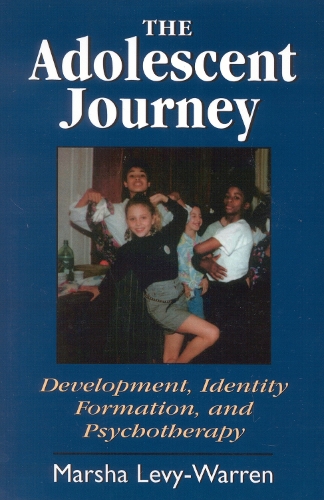
The Adolescent Journey
(Paperback)
Publishing Details
The Adolescent Journey
By (Author) Marsha Levy-Warren
Jason Aronson Publishers
Jason Aronson Publishers
1st April 2000
United States
Classifications
General
Non Fiction
Child, developmental and lifespan psychology
305.235
Physical Properties
Paperback
382
Width 159mm, Height 227mm, Spine 28mm
549g
Description
This is a comprehensive statement about adolescent development, identity formation, and treatment.
Reviews
The Adolescent Journey is the perfect reference for anyone interested in the many issues of adolescence and development, such as separation and individuation, cultural and sexual identity, and the emerging sense of self in today's world. The beauty of Dr. Levy-Warren's book is that she blends theory and her own sensitive clinical work into a compelling study useful for other psychotherapists. She gives us a rare view of how a keen-eyed clinician reaches and works with the healthy part of a patient's ego. Reading this book is as satisfying as presenting clinical process to a gifted supervisor. -- Jerome H. Meyer
Drawing on both her extensive knowledge of psychoanalytic developmental theory and her intensive clinical experience with adolescents, Dr. Levy-Warren has produced a wonderful bookclear and cohesive, sensible and sensitive to the developmental, emotional, and intellectual issues that all adolescents must face in today's world. This thoughtful and useful book, poised at the complicated juncture of self and culture, will provide all mental health professionals with an essential map for the adolescent journey. -- Ava L. Siegler PhD, director, Institute for Child, Adolescent, and Family Studies, New York
The Adolescent Journey provides a provocative, deeply scholarly, and downright useful perspective on a critical period in personality development. Mental health professionals of all stripes and persuasions will find this book appealing and enlightening. By placing the oftentimes excruciating concerns and disturbances of adolescence in the developmental context of self, family, and community, this analysis allows us to appreciate the normative tasks of this period while at the same time recognizing the ways in which individuals struggle to find their personal place in society. Without romanticizing adolescence, Levy-Warren compellingly argues for its prominence as a building block to adult maturity and demonstrates its reverberations in the problems in living of many, if not most, adults. -- Nancy Canor
